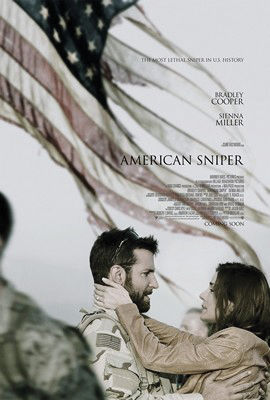For those seeking an insight into an individual veteran’s perspective on the Iraq War, director Clint Eastwood’s sober drama “American Sniper” (Warner Bros.) — which stars Bradley Cooper as real-life Navy SEAL Chris Kyle — will likely hit home.
Yet moviegoers in search of a bigger-picture moral assessment of that conflict, or of armed clashes in general, may come away disappointed.
Drawing on Kyle’s 2012 memoir (written with Scott McEwen and Jim DeFelice), Eastwood and screenwriter Jason Hall trace the expert sharpshooter’s rise to celebrity status among his comrades. They also track his emergence as a prime target for enemy insurgents who eventually put a price on the Texas native’s head.
While Eastwood successfully conveys Kyle’s personal heroism, his film avoids engaging the larger issue of whether the geopolitical cause to which Kyle repeatedly and resolutely lent his skills was an ethically valid one. In purely cinematic terms, moreover, the picture alternates between effectively displaying the consequences of Kyle’s scarring battlefield experiences and weakly relying on dialogue that can only hint at these same wounding repercussions.
Taken on its own terms and considered as a whole, however, Eastwood’s movie reliably escorts viewers through both the agonizing instantaneous dilemmas and the longer-term complexities that confronted the courageous warrior on whom its action centers.
The film contains stylized violence with some gore, a scene of torture, a premarital situation, some sexual humor and references, several uses of profanity and constant rough and crude language. (A-III, R)

